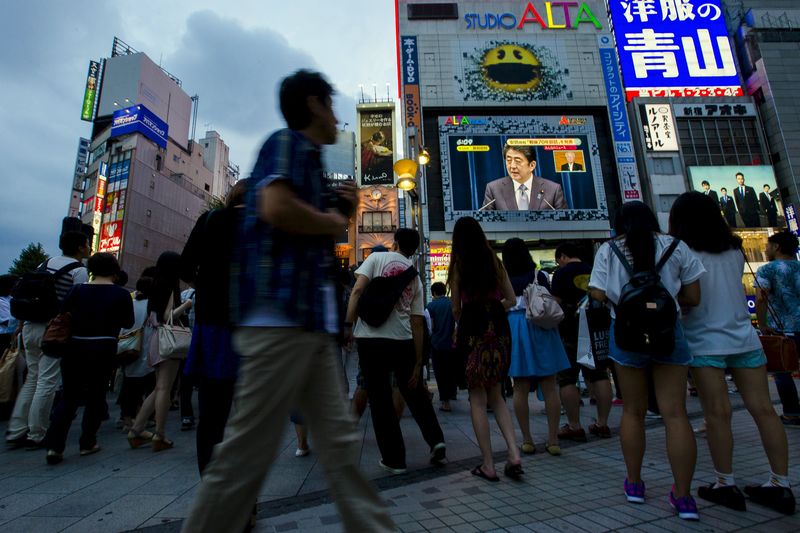Investing.com-- Japanese core consumer inflation grew slightly below expectations in October as food prices eased, although the reading still remained well above the Bank of Japan’s target as overall inflation accelerated.
National core consumer price index inflation, which excludes volatile fresh food prices, grew 2.9% year-on-year in October, data from the Statistics Bureau showed on Friday. The reading was just below analysts expectations of 3%, but accelerated from the 2.8% seen last month.
The reading was also well above the BOJ’s 2% annual target, indicating that inflationary conditions still remained largely elevated in the country. Friday’s reading showed core CPI remaining above the BOJ’s annual target for 19 consecutive months.
A core reading that excludes both fresh food and fuel prices was up 4% in October, slowing slightly from 4.2% in the prior month. But the reading remained close to 40-year peaks seen earlier this year.
Headline CPI inflation grew 3.3% in Oct, accelerating from the 3% seen in the prior month.
While core CPI inflation broke below 3% for the first time in 13 months in September, a bulk of this decline was driven by government subsidies on fuel and electricity. Underlying inflation in Japan has picked up sharply since early-2022, as surging import costs and robust retail spending kept prices largely elevated. An ultra-accommodative stance by the BOJ also kept the economy largely flush with cash.
Weakness in the yen, stemming from a dovish BOJ, also kept inflation largely elevated in the country by pushing up import costs. The Japanese currency recently hit an over one-year low to the dollar.
While the BOJ has tweaked its ultra-dovish policy in recent months to somewhat address yen weakness and rising bond yields, the bank has provided no clear cues on when it plans to pivot away from the policy.
The central bank also forecast higher inflation over the next year during a recent meeting, stating that core CPI is likely to remain above 2% until potentially 2025.
Governor Kazuo Ueda said the bank would make no changes until it was convinced that wage growth was picking up. But Japanese wages have remained subdued for most of the past two years.
Recent data also showed that rising inflation was weighing on the Japanese economy, which shrank much more than expected in the third quarter as retail and capital spending slowed.
The economy also faces increased headwinds from slowing growth in its biggest export destinations, particularly China.
